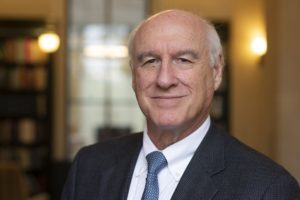Delirium causes confusion for patients, caregivers
As many as one in seven post-acute care admitted patients are delirious, according to a new study.
Although delirium involves confusion, its rapid onset and change in a person’s health distinguish it from dementia. It can also be reversed—if caregivers pay attention and know what to look for.
Delirium affects nearly 18 percent of long-term care residents with an acute illness and has a one-year mortality rate of 40 percent. The findings have been published in the Journal of the American Osteopathic Association.
“It is unclear whether delirium itself causes deterioration in brain functioning that ultimately can result in premature death, or if delirium is a symptom indicating a mind and body already in decline,” said Martin Forsberg, MD, study author and assistant professor in the Department of Geriatrics & Gerontology at the Rowan University School of Osteopathic Medicine in a press release.
No standard treatment exists as there are several causes of delirium, including infection and polypharmacy. Symptoms can persist even after the medical condition has been resolved and present as similar to dementia, which could lead to misdiagnosis. Diagnosis is unreliable without structured evaluation. Researchers found that detection rate of delirium ranges from 25 to 67 percent.
In one study, post-acute care patients whose delirium was resolved within two weeks without recurrence regained all prehospital functional level. Patients whose delirium had not resolved regained less than 50 percent of their prehospital functional level.

Nicole was Senior Editor at I Advance Senior Care and Long Term Living Magazine 2015-2017. She has a Journalism degree from Kent State University and is finalizing a master’s degree in Information Architecture and Management. She has extensive studies in the digital user experience and in branding online media. She has worked as an editor and writer for various B2B publications, including Business Finance.
Related Articles
Topics: Clinical , Infection control











